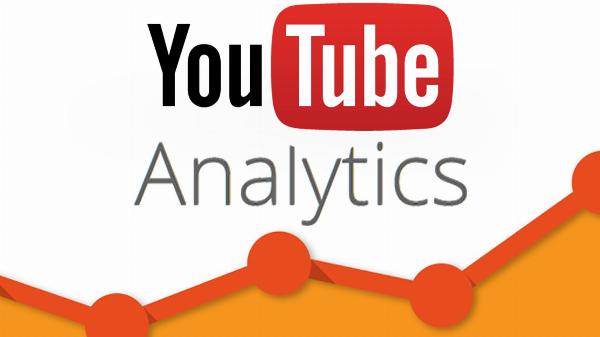 Content Gap Analysis – Find What Competitors Are Missing!
Content Gap Analysis – Find What Competitors Are Missing!
How AI And Generative Content Are Changing SEO Practices
Written by davis smith » Updated on: June 17th, 2025

The rapid advancement of artificial intelligence (AI) has ushered in a transformative era for digital marketing, particularly in the realm of search engine optimization (SEO). Generative AI, with its ability to create content at scale, has significantly altered how businesses approach SEO strategies.
According to a survey conducted by SEO Clarity “ 83% of respondents from multiple companies reported that their SEO performance improved after incorporating AI.”
This evolution is not merely about improving rankings but enhancing user experience, driving engagement, and optimizing performance across various platforms.
Let’s explore how AI and generative content reshape SEO practices, offering insights into the opportunities and challenges they present:
The Evolution Of SEO: From Keywords To Context
SEO has always been dynamic, adapting to the evolving algorithms of search engines. In its early days, SEO was heavily focused on keywords—simple terms and phrases that users typed into search engines. Over time, search engines like Google have shifted their emphasis from individual keywords to understanding the context and intent behind searches.
For businesses partnering with an SEO services company, this evolution highlights the importance of staying current with advanced strategies. AI plays a pivotal role in this shift.
Algorithms like Google’s RankBrain and BERT use machine learning to analyze search queries more effectively and understand their context. SEO is no longer about cramming keywords into content but about delivering valuable, relevant information that aligns with user intent.
Generative AI tools like OpenAI’s GPT models contribute to this by creating contextually relevant content, improving the chances of satisfying both users and search engines.
Generative AI: Revolutionizing Content Creation
One of the most significant impacts of generative AI on SEO is its ability to produce high-quality content at scale. Traditionally, content creation was time-consuming, often requiring a team of writers and editors to ensure quality and consistency. Generative AI has changed this dynamic by offering:
- Content Scalability: AI tools can generate thousands of words in minutes, enabling businesses to produce more content in less time. This is particularly beneficial for eCommerce websites and large-scale publishers that need to create detailed product descriptions, blogs, or landing pages quickly.
- Personalization: Generative AI can tailor content to specific audience segments based on data insights. This level of customization enhances user engagement and increases the likelihood of conversions.
- Content Variability: AI can produce multiple versions of the same content, allowing businesses to experiment with different tones, styles, or formats to determine what resonates best with their audience.
However, while generative AI offers speed and efficiency, the human touch remains crucial to ensure the content aligns with the brand voice and provides genuine value.
Enhanced Keyword Research And Analysis
AI has revolutionized keyword research, a cornerstone of SEO. Tools powered by AI, such as SEMrush, Ahrefs, and Moz, now offer more sophisticated data analysis capabilities. They not only provide a list of potential keywords but also analyze:
- Search Intent: AI helps identify what users are truly looking for when they enter a query, enabling more targeted content creation.
- Competitor Insights: AI tools can analyze competitors’ strategies, uncovering keyword gaps and opportunities.
- Long-Tail Keywords: These highly specific phrases often have lower competition but higher conversion rates. AI excels at uncovering these hidden gems.
By leveraging AI for keyword research, businesses can create content that aligns more closely with user needs and search engine algorithms, driving better performance.
Content Optimization Through AI
Creating content is just the first step; optimizing it for search engines is equally critical. AI-driven tools are transforming this aspect of SEO as well:
- Automated Meta Tag Generation: Tools like Surfer SEO and Jasper can automatically generate optimized meta titles and descriptions based on the content, saving time and ensuring consistency.
- Content Scoring and Recommendations: AI tools analyze existing content and provide actionable insights to improve performance. For instance, they suggest adding internal links, incorporating missing keywords, or improving readability.
- Real-Time Optimization: Some AI-powered platforms offer real-time optimization suggestions as you create content, ensuring it meets SEO best practices from the outset.
These advancements streamline the optimization process, making it more efficient and effective.
Conclusion
AI and generative content are revolutionizing SEO practices, offering new opportunities for efficiency, scalability, and personalization. From content creation and optimization to technical SEO and user experience, AI-driven tools are reshaping how businesses approach digital strategies. While challenges and ethical considerations remain, the potential benefits of integrating AI into SEO strategies are immense. By staying adaptable and leveraging these advanced technologies, businesses can navigate the ever-changing SEO landscape and achieve sustainable growth.
Note: IndiBlogHub features both user-submitted and editorial content. We do not verify third-party contributions. Read our Disclaimer and Privacy Policyfor details.
Copyright © 2019-2025 IndiBlogHub.com. All rights reserved. Hosted on DigitalOcean for fast, reliable performance.















